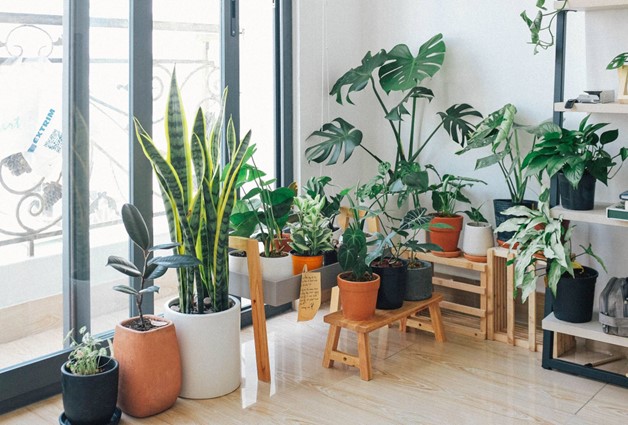It’s a scientific conclusion that growing indoor plants can reduce stress and improve mental health. We live in a modern age where coping with digital technology and media is a bit too much for some of us. Thankfully, having plants around can be a terrific solution to keeping depression and anxiety in check.
Being a young millennial myself, I can swear by the mental health benefits of houseplants. As a plant parent who spends a great deal of time researching them, I’ve come across several varieties that are especially soothing and great for boosting your mood.
Best Indoor Plants For Stress, Depression, And Anxiety
These are the best indoor plants that can improve your mental health:
-
Lavender
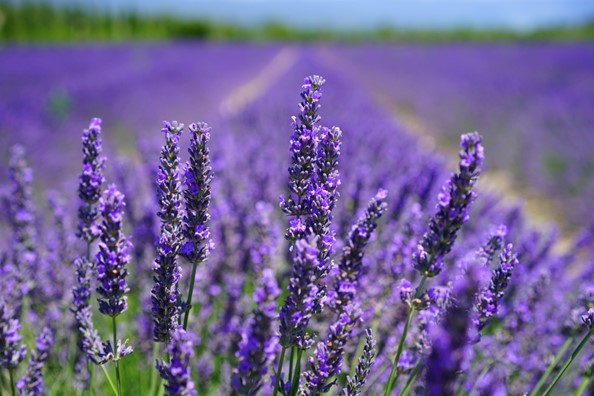
Lavender doesn’t just look nice, it smells great too, and is easily one of the best indoor plants for dealing with stress. Native to the Mediterranean sea, it’s a popular source of essential oil and is often used as a herb thanks to its many healing properties.Experts agree that inhaling the scent has an anti-depressant effect and can improve the quality of sleep. I’ve personally used lavender to help with my insomnia and I can say it helps. While there are several varieties of the plant, I would recommend French lavenders for growing indoors. English lavenders tend to have a more appealing fragrance, but they’re not as tolerant when grown as houseplants.
Best Growing Conditions for Lavender
- Full sun. Place in a window where it would receive as much light as possible.
- Well-drained, moderately-fertile soil.
- Water twice a week until maturity, then once every two weeks.
- Fertilize with an all-purpose liquid fertilizer every four weeks in spring and summer.
-
Lemon Balm
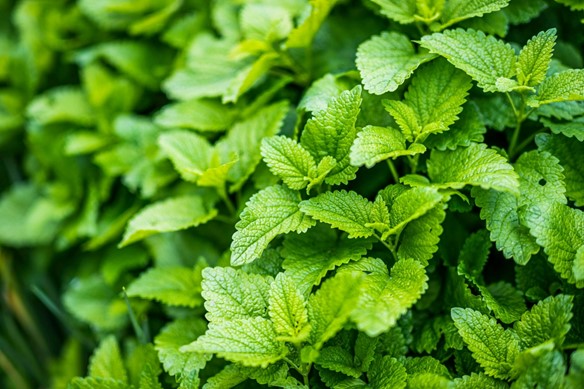
Lemon balm is a versatile plant that can be used for tea, as a herb, as flavoring, and as a fragrance. Being a mild sedative, it serves as an excellent solution for insomnia when ingested. The herb’s bushy appearance makes it seem more suited for the outdoors, but it does look lovely as a container plant.
Its mild lemon aroma is a strong selling point for growing indoors, and I find it helps keep my mind relaxed when I’m trying to study. It’s been established that lemon balm has chemical properties that can promote sleep as well as reduce depression and anxiety when inhaled.Best Growing Conditions For Lemon Balm
- 5 hours of direct sunlight each day. Too much sun can lead to sunburn.
- Moist, well-drained soil.
- Avoid over-watering. Let the top of the soil dry before you water again.
- Prune throughout the season to preserve shape and maintain air circulation.
-
Snake Plant
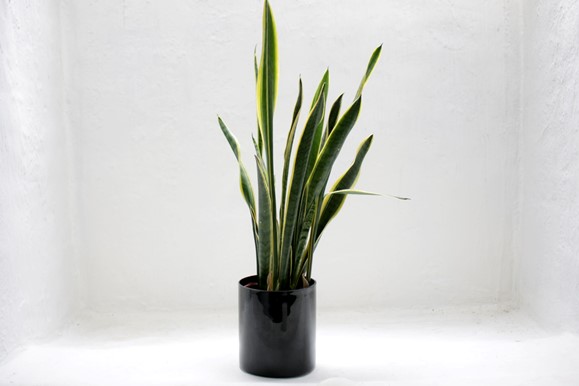
Named “snake plant” because of its appearance, Dracaena trifasciata (its botanical name) does a lot more than just make your apartment look appealing. It might be the perfect houseplant for beginners, as it’s incredibly tolerant of neglect.
What really makes the snake plant so great is how effective it is at purifying the air. It’s been approved as an air purifier by NASA for its ability to remove toxins such as formaldehyde, benzene, xylene, and carbon monoxide. It’s said to have therapeutic effects for stress, anxiety, and headaches.Best Growing Conditions For Snake Plant
- Bright indirect light, but it can also grow in low light.
- Well-drained soil.
- Water once every 10 days during the growing season. Water less frequently in winter.
-
Basil
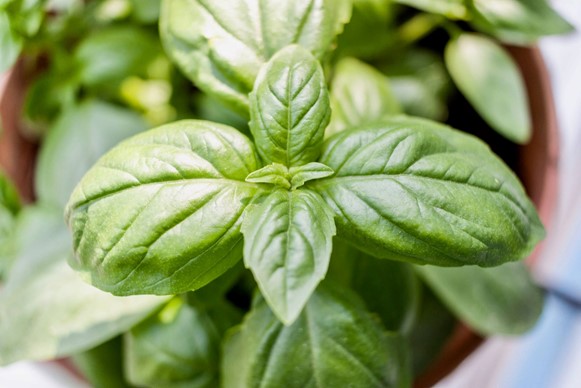
A popular medicinal plant that is native to Asia, Basil is often referred to as the “king of herbs.” While it will do a great job looking pretty in a pot, the plant also has several mental health benefits. Research has shown that it has compounds that can help increase focus, reduce anxiety and depression, and lower the risk for age-related memory loss.
When ingested as an herb, basil can help protect against cancer, prevent heart disease, and regulate blood sugar. The essential oils can help fight bacterial and skin infections and lower the risk of inflammatory conditions. There are different varieties of basil, including sweet, lemon, Thai, and purple basil. I’d recommend growing the Thai basil indoors for its mild licorice flavor and the lemon basil because it’s easier to grow than most varieties.Best Growing Conditions For Basil
- Six to eight hours of direct sunlight.
- Rich, moist, well-drained soil with optimal pH levels of 6 to 7.
- Basils growing in pots should be watered once every 4 to 5 days. Mature plants need deep watering at least once a week.
- Prune periodically throughout the growing season.

